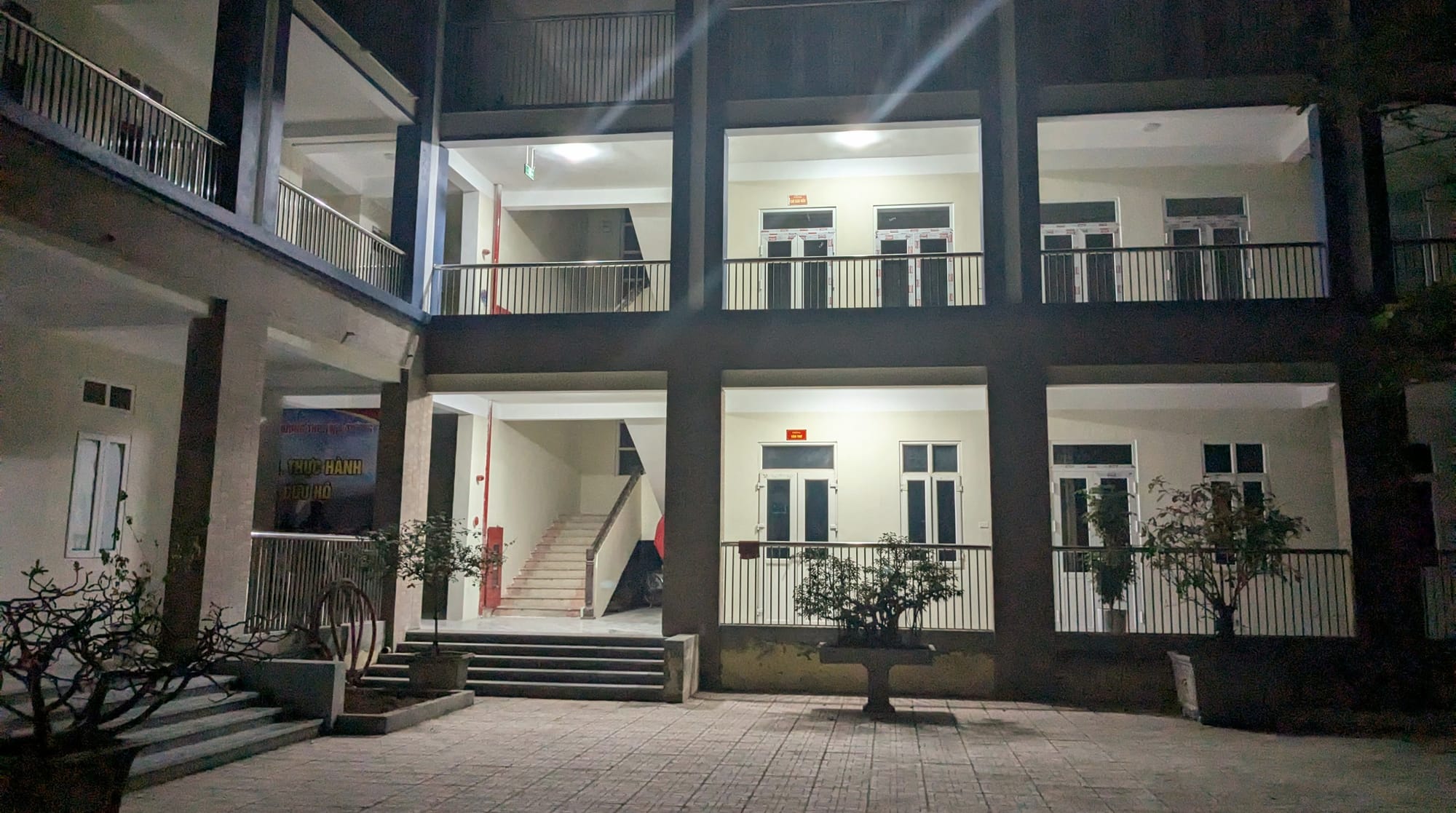Living in Việt Nam, Pt. 6 - Older Brother
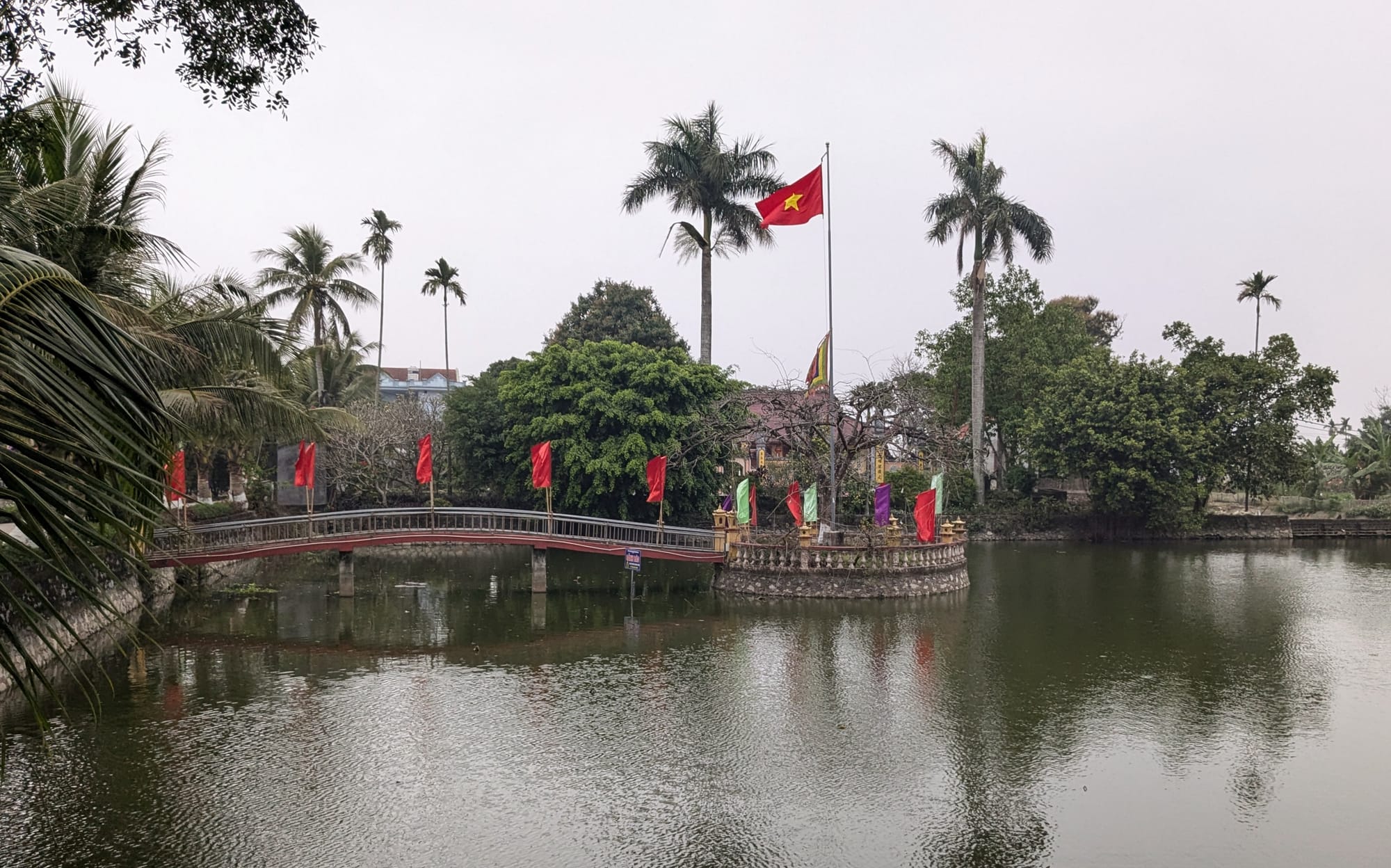
January 2025
It is nearing the Lunar New Year - or Tê't - in late January, and there are dinner parties to attend every night. An English teacher invites me to attend an end-of-year party for "the neighborhood": the block of houses closest to the school.
This village is very traditional and meals are usually eaten on bamboo mats or rugs on the floor. Three big mats are put down to accommodate the three dozen attendees; we sit in three groups, taking off our indoor slippers to walk barefoot on the mat and sit cross-legged around the food.
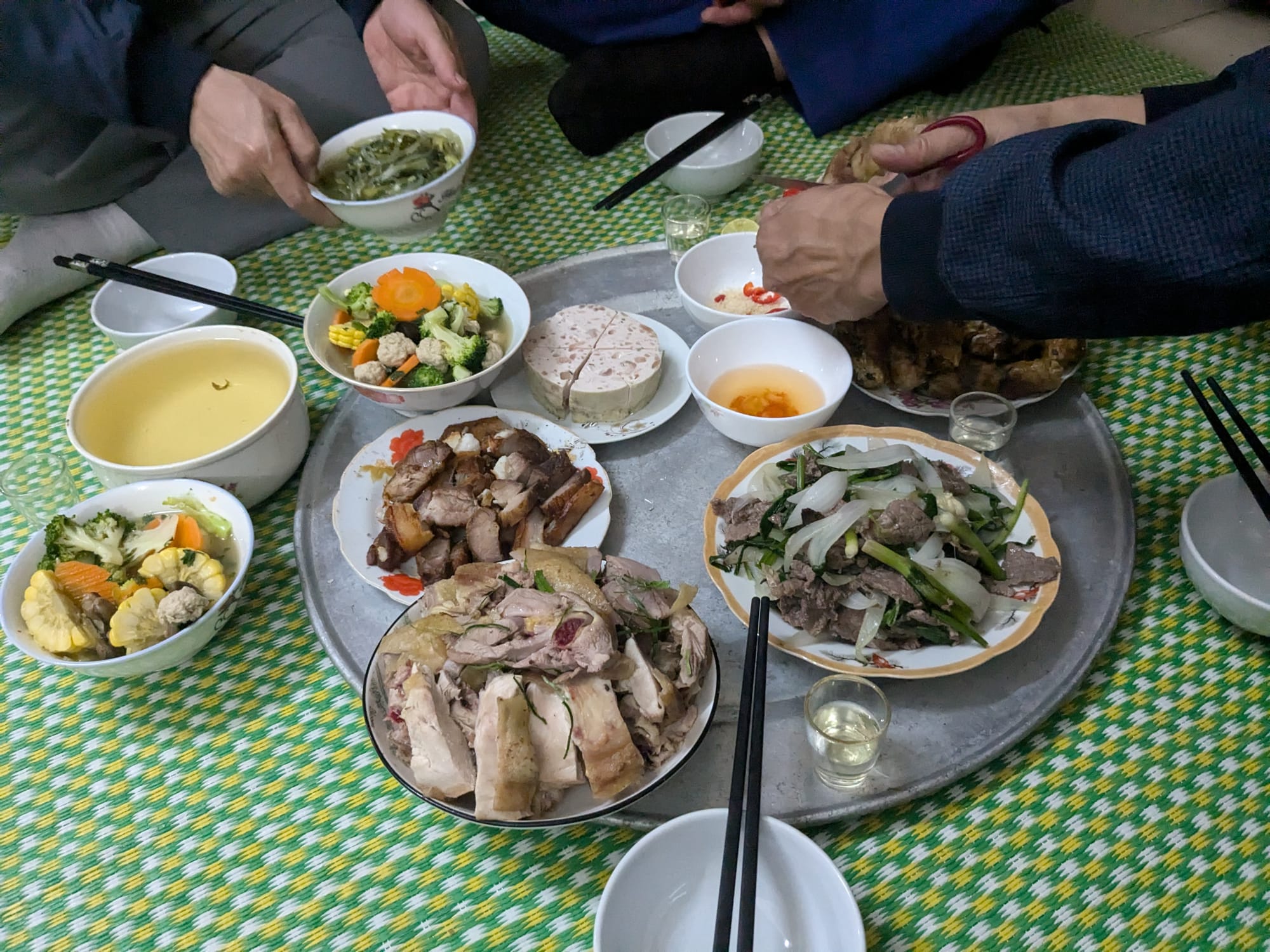
There is boiled chicken, pork and tofu, lots of vegetables - mostly steamed in simple but delicious preparations. There is soup and white rice and fruit: these are the last three things eaten in a standard meal. A rice cooker is placed within reach of the mat on the floor, keeping the rice warm until it is needed. Filling your bowl with rice is a sign that you are ending your meal because you have been able to eat your fill of the bounty in front of you.
Since it is close to the Tê't holiday, there is also bánh chưng: a large square block of densely packed food. A thick layer of sticky rice encapsulates a filling of savory green bean paste, shredded chicken, and black pepper. It is pressed tightly into its square shape. Then several layers of banana leaves are tied fast with twine and the whole package is steamed for twelve hours.
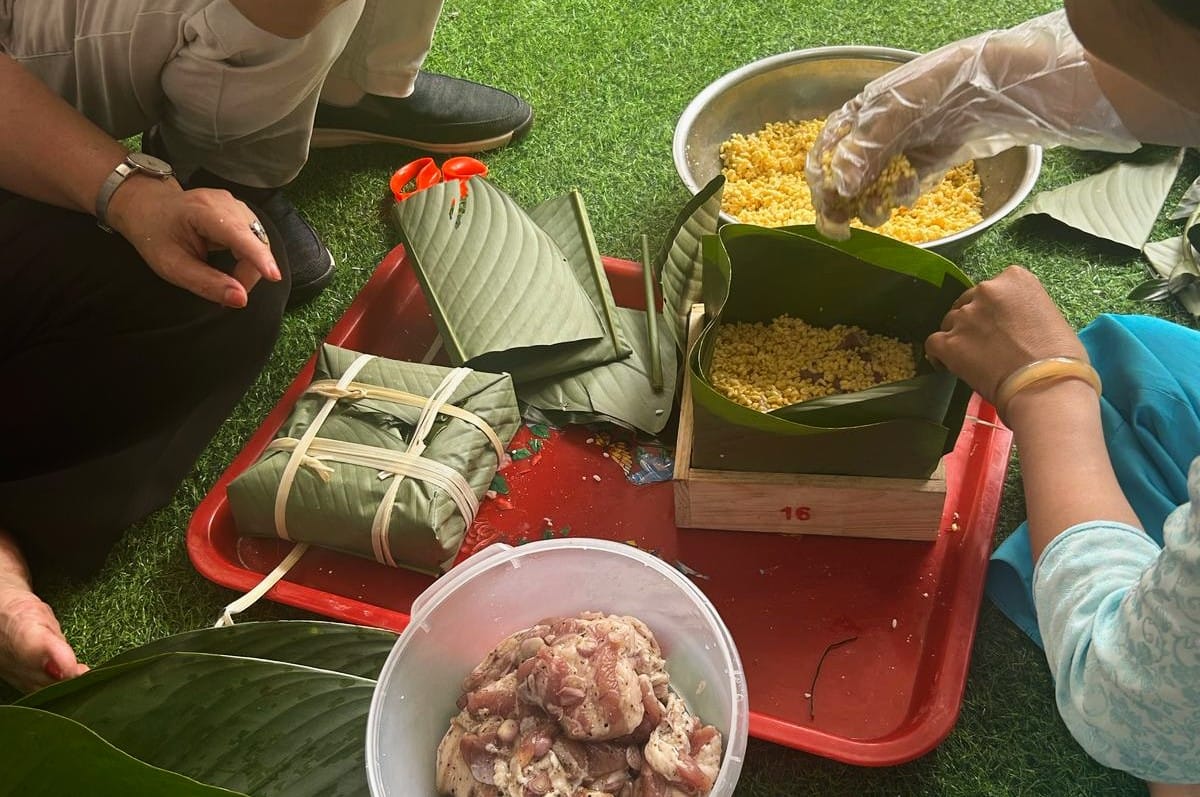
Mostly rice, I find bánh chưng to be a little bland, although the banana leaves do impart a hint of aromatic flavor to the rice. Most Vietnamese seem to find the flavor a source of nostalgia rooted in family celebrations at home. Since it is also a food preservation method - bánh chưng does not need to be refrigerated, although most people do to retain its freshness for longer - I think the dish is rooted in a history of famine and food shortages. It is certainly a symbol during Tê't of the bounties of the earth, and of not going hungry.
There is the usual drinking and I am introduced to a few dozen people whose names I know I'm not going to be able to remember. There is an English teacher from another school who wants to practice his English with me - and I'm more than happy to oblige - and his younger brother who shakes my hand and says the only words he knows in English: "Thank you."
After dinner the mats are cleared away, and the men start to sing traditional Vietnamese songs karaoke. I am offered canned beer, which I politely refuse since I'm still taking medication from my previous illness. And I also don't know how long this party is going to last.
Karaoke machines are common in Vietnamese households and invariably use Youtube as their library of choice. Which means inevitably, they can turn to ask me to sing an American song for them.
I sing John Denver's 'Country Roads'. It suits my baritone voice, has a distinct Americana sound, and the chorus is familiar to them. By the end, they're singing the chorus with me arm-in-arm.
Shame, I think. That's probably the last time I can use that song for a while. I'll need to find a new karaoke song. I've sung it three times now, with different groups of people; careful to avoid overlap, lest they joke that it's the only song I can sing.
I never sang karaoke in America. Part of it is shyness, but part of it is most of the songs that I like to listen to do not suit my voice, and I want to be able to sing a song well rather than find out it's not in my range halfway through.
Everyone is cheering and shaking my hand, in the best of spirits, and the party kicks into the next gear, as someone changes the television to mid-'70s European disco music. The song is 'Daddy Cool.'
I find myself in the middle of another activity I almost never did back home: it's now a dance party.
For several songs - in what I soon realize is an all-Boney M playlist - I dance with a bunch of middle-aged men who are mostly older than me. The women who haven't already wandered home watch bemused from their seats along the wall.
A part of my mind screams 'Find a way to get out of this', but my face betrays me with a big, befuddled grin at all these men dancing poorly and laughing madly. The younger brother drapes his arm around me, leaning on me, saying over and over again: "Thank you. Thank you."
A few songs later, I am saved by curfew. The school's guard for the night wants to lock the front gate of the school and calls to find out where I'm at.
He lets me in with a grumpy look on his face.
"Chào anh." I address him as older brother, politely.
"Vui?" Happy?
"Vâng." Yes.
"Say?" Drunk?
"Không," I laugh.
He gestures to the small glass-topped table in front of the guard house. I assume it is time for the nightly ritual. Nước. Water. But meaning tea: nước trà. (Everything liquid is nước. Juice is nước ep, the water pressed out of fruit; the soup we had with dinner was nước rau, the water used to cook vegetables.)
Yes, we always drink strong green tea right before bed.
But not tonight. He produces a plastic bag with 4 ice-cold beers.
I sit down. Well, what the heck. It's Saturday.
We crack the first can, and I try to say what I can to him. I tell him the party was fun. He drinks deeply and makes the sound you make when your thirst is quenched. But he winces a little too.
"Lạnh." Cold.
"Vâng. Ngon." It's tasty cold, I imply.
You like cold beer? he asks. "Đúng r'ôi," I quip. Correct.
He laughs, finally letting his gruff facade drop for a second. I don't like it cold, he says pointing to his throat. Sore throat.
He goes into the guard shack and comes back out with a half-empty 24-pack and stands two more cans on the little table. He points to the two remaining cold beers and then to me.
Breakfast in the morning? he asks.
Okay! What time?
6:00.
6:00! On my only day off...? 6:30, I bargain.
He stares at me like he's disappointed with me for a long moment and agrees.
My bathroom at the school is just down the hall between the teachers' bathrooms. This part of the school was under renovation just months ago, and I wonder if this bathroom was already in the blueprints. It's likely that there was always meant to be an extra bathroom here with a shower. The guards sleep here, and occasionally teachers or staff sleep here if school activities keep them too late to travel home. Many of the offices have a small cot tucked away behind wardrobe-sized file organizers; naps after lunch are obligatory.

At 6:25, I'm finishing up my shower when the guard bangs on the bathroom door. He's done waiting for breakfast.
Meeting him outside, he gestures gruffly to get on the back of his motorbike.
Uh oh, here we go. I think to myself.
I'm not allowed to ride a motorbike in any capacity during my service as a volunteer. It's a decades-old rule that prevents what was once the leading cause of death in the Peace Corps. But motorcycles here are so important that it's hard to explain this rule; without more context, it sometimes come across like a rebuke to their culture. Very few people own automobiles. Not being able to grab a ride from someone severely limits my mobility in-country.
I was trained to explain this. I think the guard is already aware of the rule, but I still have to argue with him a little. He gives me this look that means, 'It's one time, no one will know.' But it only takes one infraction to put an end to my time here.
He relents and motions for me to walk around the corner from the school, where he walks into one of the homes. Most homes in this rural area don't have front doors or doorbells. The front rooms of homes are open during the day for ventilation. Everyone is close with their neighbors and if you want to talk to someone you poke your head in and shout to see if they're home.
The neighbor - one that I partied with last night - is happy to lend me his bicycle for the morning. The angel on my shoulder tries to remind me to ask for a Peace Corps-approved protective helmet, but the guard's impatient glare scares him away. Anyway, the only helmet to be found here is the fatigue green pith helmet that older men commonly wear, perhaps a memento of military service.
The guard is already motoring away so I have to hurry to follow. I haven't ridden a bicycle in years as it wasn't safe or fun to do in my urban neighborhoods back home, but it comes back to me like... well, you know.

And as I ride through the narrow streets of this sleepy village on a Sunday morning, seeing parts of it that I hadn't seen before, I feel a freedom that I haven't felt cooped up in my room for the first month. I decide instantly that finishing the paperwork for Peace Corps approval to buy a bicycle is a top priority.
At the very least, I need to get that helmet. Fast.
We come to a small, ancient-looking building with crumbling bricks blackened from the weather. There is one long table with stools to seat a dozen people around it. Empty bowls and utensils clutter the table, as we seem to have missed the breakfast rush, while there are only five men still seated around it, drinking wine.
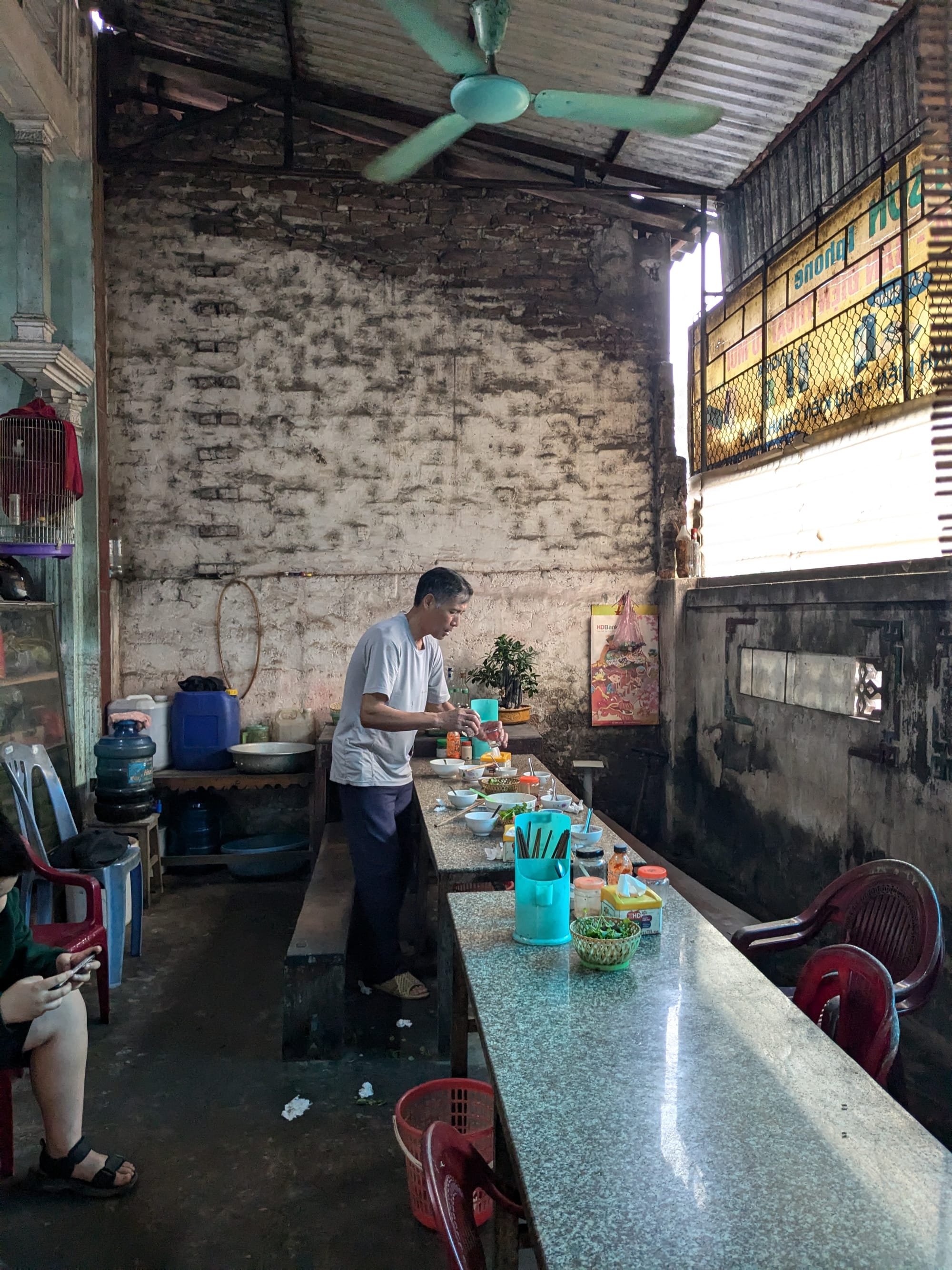
I quickly become the center of attention and do my best to introduce myself in Vietnamese. I am quickly invited to drink so that I can toast everyone. Soon, a new friend has his arm around my shoulder, which makes it a little difficult to eat.
This is my first time eating cháo lòng. Probably the first time of many, as it is almost as popular as phở for breakfast in the countryside. It is hearty and cheap.
But it is a little bit out of my comfort zone, even though I consider myself an adventurous eater.
First, we are given a bowl of herbs - mint, cilantro, and a few I don't know the names of yet - and a plate heaped with pale, steamed organ meat. This is the "lòng" part: pig intestines.
The small intestines are simply steamed and cut into inch-long pieces that make no effort to hide what they are. They are chewy and tasteless, but my guard friend mixes us a dipping sauce with the condiments on the table - fish sauce and a mild, sweet chili sauce. The large intestines are also steamed but are stuffed with blood pudding and then sliced like link sausage. They are soft as tofu, and have a rich, iron-forward organ meat flavor, but the texture is challenging with bits of gritty cartilage.
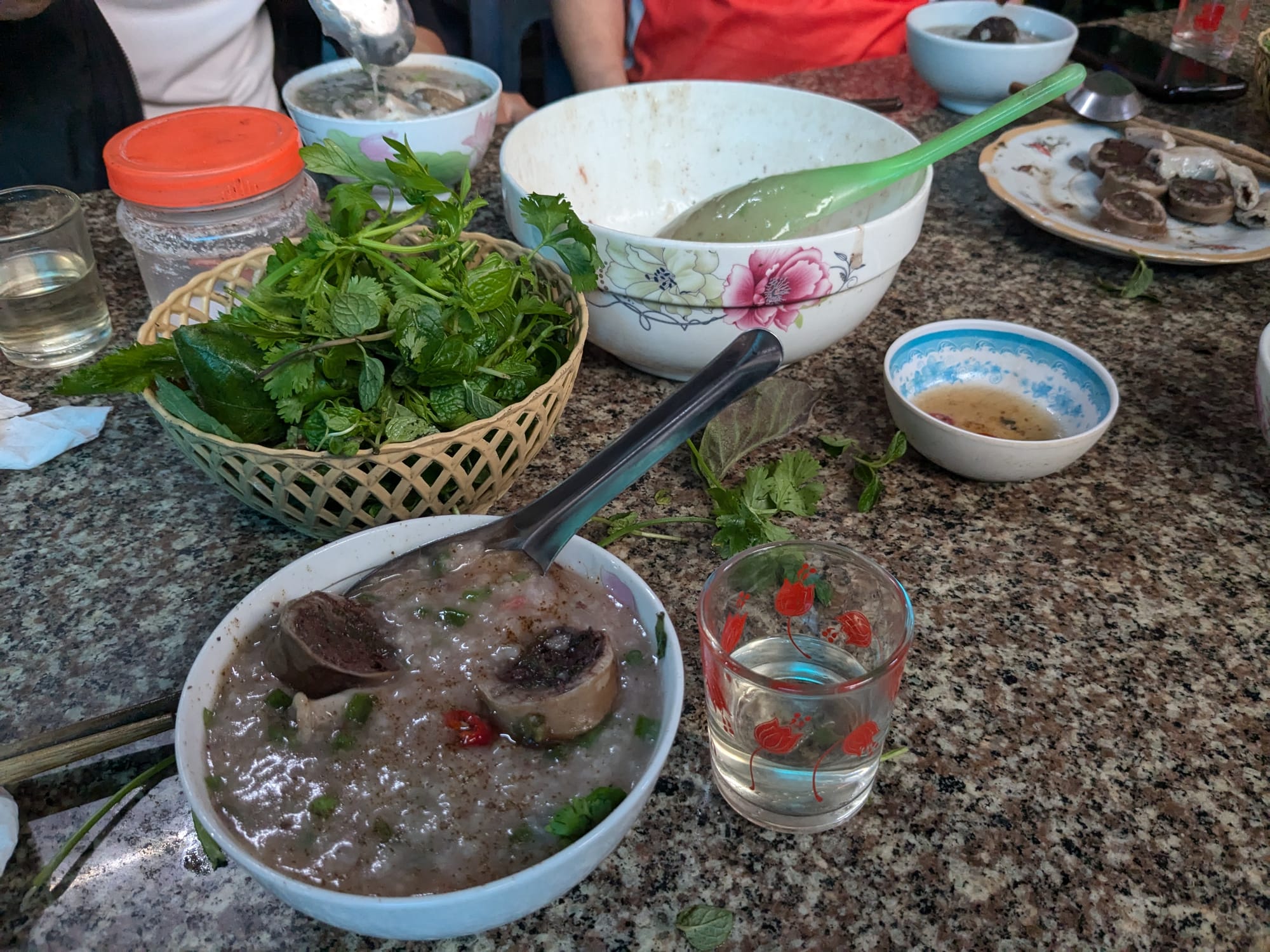
Only after you have eaten your fill of protein does a bowl of cháo arrive. That's cháo with a rising tone - distinct from the falling chào that means 'hello' - and it means porridge. The aromatic and steaming porridge comes with more lòng lợn mixed in and you can garnish it with more herbs, fish sauce, and - most importantly - a generous sprinkling of black pepper.
It is wonderfully warming and keeps you full for much longer than a noodle soup.
February 2025
A few weeks later, on another Saturday evening, my guard friend returns for night duty and comes and waves to me through the window of my door.
He used to just walk in, once almost wrenching the handle off expecting it to be unlocked. While I can adapt to less privacy, culturally I still need a little bit of a barrier that makes me feel like this little space is 'mine'. He may not understand it exactly, but he has learned to respect this barrier.
But I am happy to get up and follow him to the guard shack for a few beers under the wide open sky on a beautiful night.
Tonight, we drink them his way: room temperature. And from a plastic grocery bag he produces a bánh đa, a thin rice cracker the size of an extra-large pizza. It is a common snack to eat with beer and we snap off pieces to eat as we chat. It is unsalted, unseasoned, and almost tasteless except for the toasted sesame seeds embedded in one side. It is a perfect snack food.
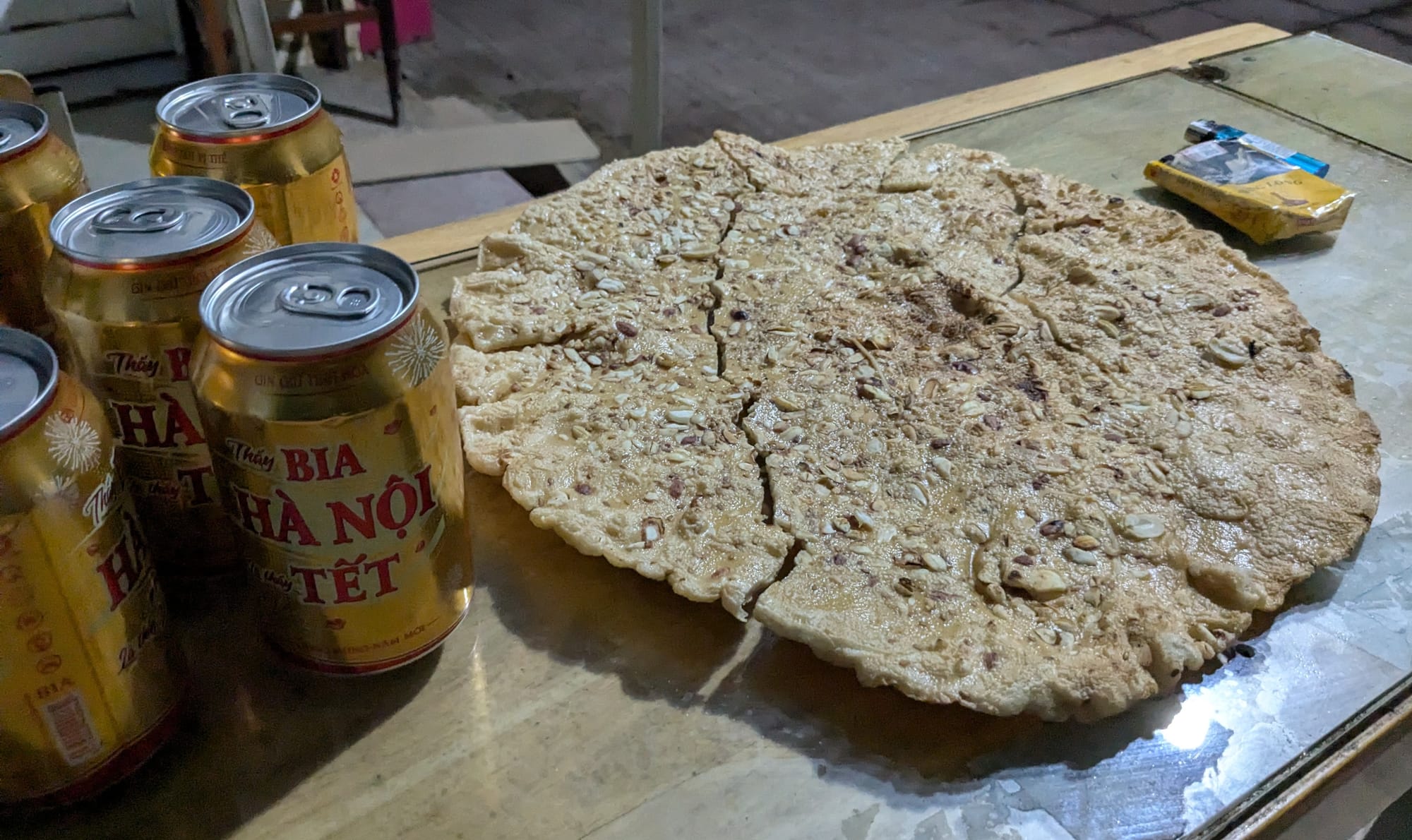
Like with wine, we only drink after toasting each other; after toasting, he chugs several gulps down. He has to urge me to finish my cans to keep up.
He shows me his fatigue green pants and tells me they were worn in 1975 by a Vietnamese soldier in the American War. He bought them recently and is proud of them.
He is a retired soldier himself. I often see trucks full of soldiers driving around, and wonder if they often move where they're stationed, so I ask him where he was stationed. He was stationed at the border with China, which he says with a frown. He mimes shooting his rifle.
Wait, did you see combat while you were there? I ask.
In 1998, there was an incursion. They crossed the border. I don't get more detail than that.
He gets up and motions for him to follow. Nước, he says. Somehow, I know what kind he means this time. I need to pee too.
We walk out the school gate, onto the gravel road, and pee side-by-side onto two trees near each other.
Back at our seats, he tells me that Việt Nam doesn't like fighting, they only want peace. I tell him most Americans feel the same. We toast to peace. Then, he asks if we are brothers now. We toast to brotherhood.
He urges me to follow the drinking up with another piece of the big cracker.
Tasty, no?
"Ngon." Tasty, I agree.
He tells me he is poor and that's why he likes to eat bánh đa.
I tell him I will buy the beer next time, but he refuses. Why not? I ask. In America, if your friend buys you a beer you buy him one the next time.
He waves me off.
I don't know about that stuff, he says. I just want to drink with my brother.
